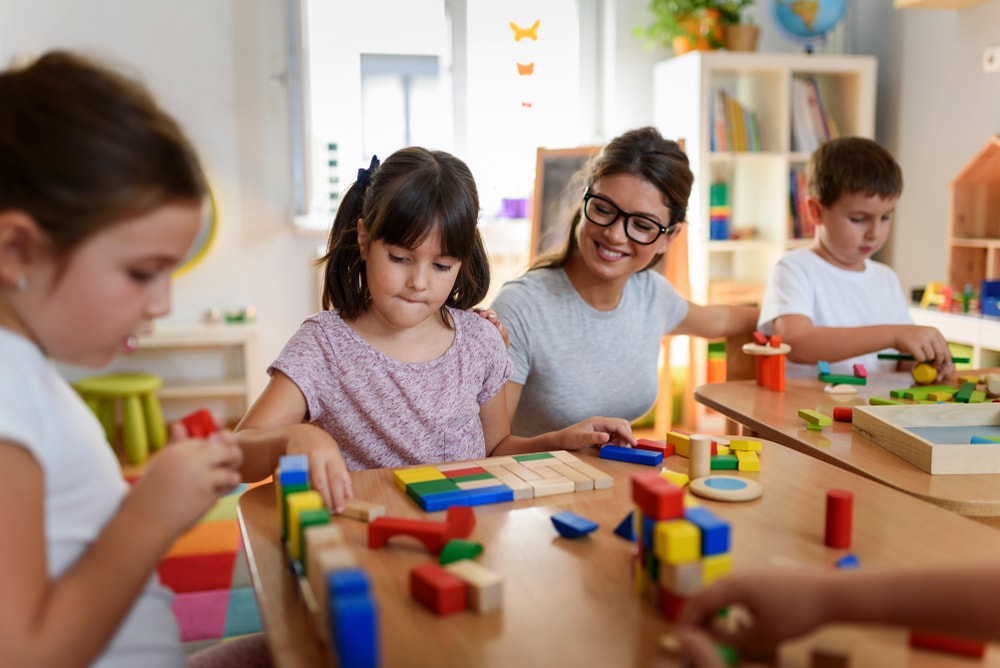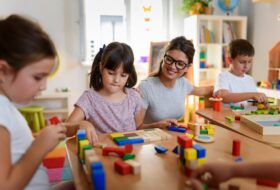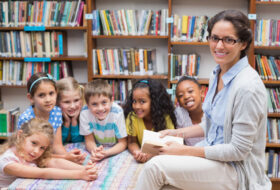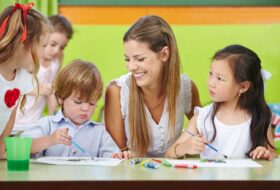If there’s one thing that we have found during the Covid-19 era, it’s that the workforce cannot manage without childcare. Parents the world over have struggled caring for young children while trying to juggle full-time employment. As one study conducted over lockdown has demonstrated, the bulk of the caring has fallen to women, even if they are working full-time too. For the majority of school-aged children, facilitating their learning by holding classes online is nearly an impossible feat when you are talking about babies and toddlers. Early childhood education truly is an essential service.
It would seem that the Australian Government agrees. During the pandemic, the Australian Federal Government declared that all care in qualified centres will be free until July 12. Additionally, they have pumped $1.6 billion into the childcare sector to keep it afloat while the country endured a partial lockdown after the outbreak of Covid-19. These announcements have been well received by families all over the nation as well as those employed in the childcare sector.
Children thrive on routine and Covid-19 has prevented the vast majority of families from keeping to their established routine. As we start to resume the ‘new normal’, families are transitioning back to early childhood centres and with this comes the potential for a lot of stress and difficulty for everyone involved. Here are three ways you can support children and their families in these strange times as an early childhood educator:
Use role play games
One of the best ways for children to express their feeling and their fears is through role playing games. Encourage the families to prepare for their return by role playing daily routines, such as saying goodbye to Mummy or Daddy, packing the backpack, and playing outside. You could also help children playing ‘day care’ while they are at daycare, to help them express their feelings about a return to preschool life.
Use songs to encourage healthy habits
Most centres already have fairly strict guidelines about not sending children when they are sick or have a cough, but in the post-Covid world we are living in, we need to keep up our commitment to personal hygiene to help prevent the spread of disease. Try to use songs or some kind of entertaining jingles that children can participate in or sing along to reiterate the need for cleanliness and good hygiene practices.
Great examples of using songs to communicate an educational message are The Handwashing Song from the Wiggles (which is great because it also tackles counting) and Justine Clarke’s reworked song ‘Everything’s Contagious’. By getting the children onboard and helping care for the health of their playmates, staff, and families, it will be a win-win situation for educators.
The Wiggles: The Handwashing Song
Encourage communication
CHC30113 Certificate III in Early Childhood Education and Care CHC30113 Certificate III in Early Childhood Education and CareMany centres have new drop-off routines, so that will throw many children off from the outset. If you’re present at drop-off, ask the parents the best way to comfort their child to help keep the child feeling safe and loved. Children pick up on our non-verbal language very quickly, so keep your tone upbeat and positive if you encounter an issue.
At the beginning of the day and then at regular intervals, talk to the children about what you will be doing so that the children understand how their day will be spent. This will build trust with the children and help them understand what to expect next. This communication will help reestablish the routines of your room and your centre.
These past few months have not been easy but trying to reestablish routines is an essential part of our return to ‘normal’, albeit a new version of it. You are their guide during this time, so it is important that you lead from the front and meet challenging behaviour with love and kindness. Children are easily adaptable and they will settle back into the routine faster than you imagine.
Are you interested in becoming an early childhood educator? Yorke Institute is proud to deliver a high-quality standard of training to our students. We offer a CHC50113 Diploma of Early Childhood Education and Care and CHC30113 Certificate III in Early Childhood Education and Care. We produce highly sought-after, job-ready graduates. Call us today on (03) 9042 0231 to speak to a career advisor about our nationally accredited courses. You could be eligible for government funding.




